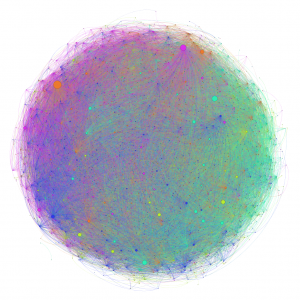In celebration of the year since the absolutely magical Queer Internet Studies (QIS) workshop, I went and realized that the final notes from our conversations never posted. Oy! I take solace in the fact these even exist and can still be shared. As described in this great final post from the QIS site by my colleague, friend, and QIS co-organizer partner in crime, Jessa Lingel, most of our panelists and presenters highlighted the digitization and import of queer archives, including the likes in New York City alone of the Downtown Collection at NYU, NY Public Library Gay and Lesbian & AIDS/HIV Archives, LGBT Community Center National History Archive, Lesbian Herstory Archives, and OutHistory.org.
When we broke into discussion groups at the end of the day, our conversations repeated five key topics.
- The internet affords a space to convey the import of our queer history while making space for queer youth to learn and develop archives, and conveying the archives to radically different audiences
- A space for play within the archives in order to get youth connected to digital materials and make space for teaching archives — all of which begs questions of access, connectivity, and humanizing digital collections
- We kept returning to our queer economies in regards to interacting with capital and maintaining our integrity — we assume strong leadership and constant turnaround of free queer labor with innovative workarounds but how do we unite these projects, grant efforts, and support the labor that undergirds the digitization of our history?
- Respond to the distancing, two dimensional computational aspects of too much history by highlighting the affective via non-heirarchical, open access (OA), well designed, and linked systems for web searches and databases, such as Collective Access, Omeka, and other free OA database software
- Still, there is a shock amongst those who came out through the early 2000s that “queer archives” is even a term, and their burgeoning number refuses the “it gets better” conversation as it sheds a light on difference and the affective pain of our queer past
Just as we finished the night, two participants shouted, ”We keep coming back to capitalism…,” followed by, ”And how we want information to be free!” Even with the first of two(!) Queering Archives issues out by the Radical History Review representing the surge of interest and research in this area, the sentiment has not changed over the last year.
[Originally posted on jgieseking.org.]


